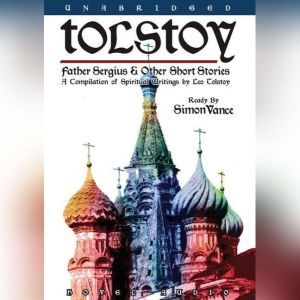
1 Rating(s)
List: $12.98
| Sale: $9.09
Club: $6.49
Tolstoy: Father Sergius & Other Short Stories
Author: Leo Tolstoy
Narrator: Simon Vance
Unabridged: 4 hr 34 min
Format: Digital Audiobook Download
Publisher: christianaudio.com
Published: 09/01/2005
Synopsis
Tolstoy is perhaps best recognized as the author of the classic novels War and Peace and Anna Karenina. While he was able to sustain complex and moving plots though large novels, his ability as a great writer also is demonstrated in his many short stories. Tolstoy brings to these brief tales the same psychological depth and spiritual insight found in his large novels. In fact, his short stories are an excellent place to begin reading this great author. You will find his challenging themes of morality, forgiveness, redemption, and more. // Here Hovel Audio has collected several of Tolstoy's most-loved short stories. Hovel has paid special attention, focusing on themes of spiritual significance. The stories in this collection include: // God Sees the Truth but Waits // A Prisoner in the Caucuses // Alyosha The Plot // Father Sergius // What Men Live By // Where God Is Love Is